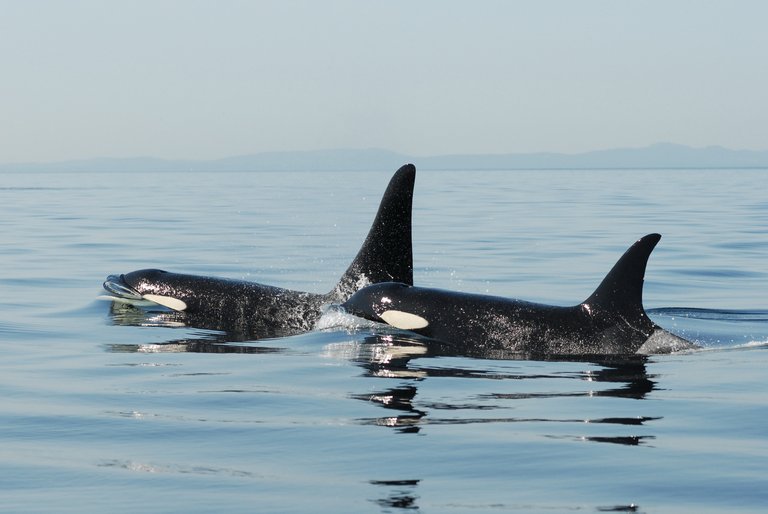Maternal menopause promotes survival of child

Females lack fertility by age 40, but live until age 90. In search of evolutionary explanations about the long postmenopausal life, two populations of orcas have been followed by a study led by Exeter University and have discovered that the death of their mother increases 14 times the probability that the adult child, over 30, will die the following year. Therefore, researchers believe that long postmenopausal life is adaptive in the case of orcas, and that the probability of mothers transmitting their genes increases with the direct help of their offspring.
The study used two populations of orcas of 589 individuals and observation data of almost four decades. Both populations of orcas inhabit the North Pacific, on the coast of the United States and Canada, and are stable and resident populations. These types of orcas live organized in families where the young spend their whole lives with their mother, forming groups of 4 to 5 generations. The offspring of the daughters stay in the group and the sons reproduce outside the group.
In fact, according to Emma Foster, responsible for the research, the fact that the descendants of male offspring grow outside the group would explain why the death of the mother affects much more the survival of male offspring than that of adults. In fact, the probability of adult females dying in the year following the mother's death is only multiplied by five: “Unlike their daughter’s offspring, their children’s offspring do not need the protection of their father or grandmother, so [from an adaptive evolutionary point of view] females gain the most from supporting adult male offspring and ensuring their survival and reproductive success,” she tells Science.
“From a biological point of view, menopause is a very rare concept,” says Foster. In addition to orcas, the long postmenopausal life occurs in two other species: the human being and the pilot dolphin. “The common characteristic of these three species is their social stability, which facilitates their support,” he added.
In the case of man, the adaptive value of menopause is explained through the hypothesis of Grandmother, since grandmothers would obtain an evolutionary benefit favoring the survival of their grandchildren, the transmission of their genes. In the case of Orka residents, help falls directly on their children and, in particular, on adult children, in light of data from the Exeter University study. To reinforce the adaptive hypothesis, the mechanism is the following that they want to investigate in the populations of orcas, that is, what exactly mothers help adult puppies so that the death of the mother influences their survival.
Buletina
Bidali zure helbide elektronikoa eta jaso asteroko buletina zure sarrera-ontzian











